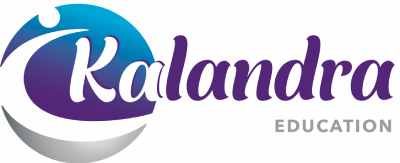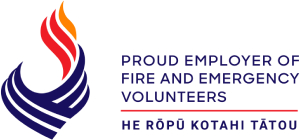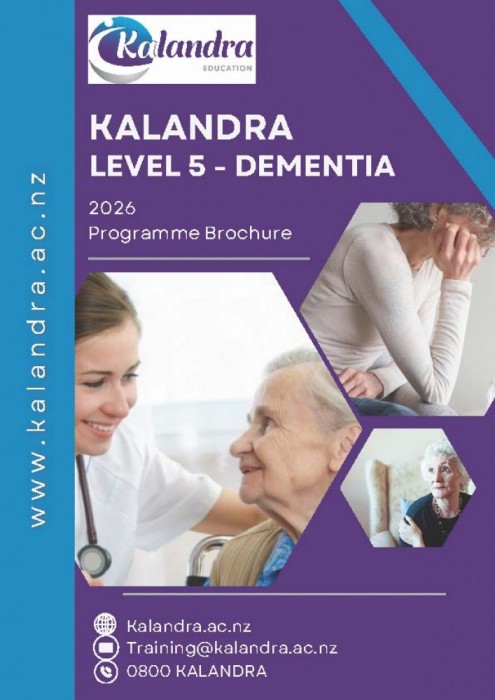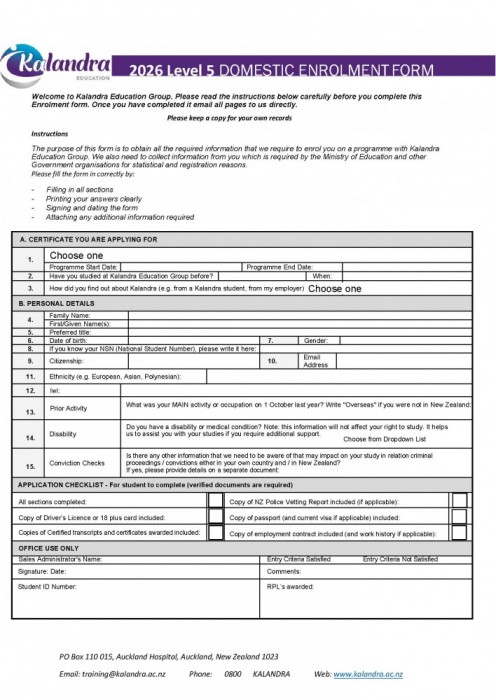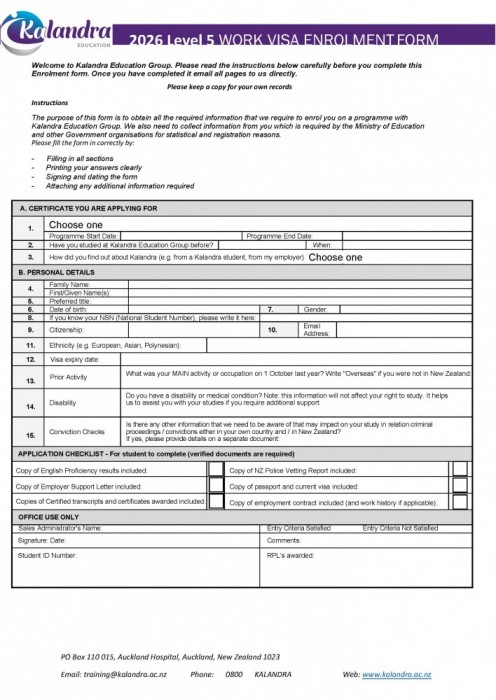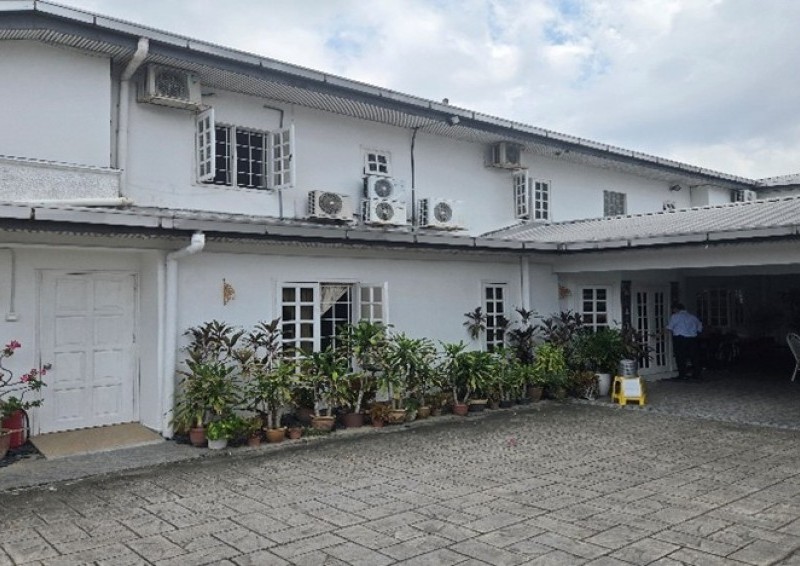Diploma in Dementia Care (Work-Integrated) (Level 5)
2026 Programme Start Dates:
- 2 March
- 20 April
- 29 June
- 24 August
- 5 October
Note: all intake dates are subject to change depending on number of enrolments - programme is also being reviewed so dates may change due to module length
Tuition Fee:
Domestic Fee: $5952
-
Special Scholarship for first 2026 intakes only: $2950 (instalment option – 50% upfront, 50% in 3 months)
Please note further instalments can be provided in exceptional circumstances
Work Visa Holders
• Tuition Fee: $7500 (full payment of fees) / $7900 (instalment option – 50% upfront, 50% in 3 months)
• Special Scholarship for first intake only: $6000 (full payment) / $6600 (instalment option – 50% upfront, 50% in 3 months)
Please note further instalments can be provided in exceptional circumstances
Note conditions apply to the following for nz citizens/permanent residents;
1. Fees Free
Until 5 October 2025: Go to to feesfree.govt.nz/final-year for information.
From 6 October 2025: Inland Revenue becomes responsible for supporting learners with final-year Fees Free. Information available at ird.govt.nz/fees-free.
From 15 January 2026: Learners who complete their first eligible qualification or programme can apply for final-year Fees Free in myIR.
2. Student loans and allowances maybe available please check the website https://www.studylink.govt.nz/
Additional Costs (may occur):
Police Vetting $25
Device (see at the end of the page places in NZ you can purchase a tablet or computer from)
Pre programme study required (Dementia Care level 4 units):
Online = $300
This can be undertaken while awating the programme to commence, it must be completed prior to the programme starting.
Programme Overview
NZQF: Level 5
Total credits: 120
Delivery length: 52 weeks (including 4 holiday weeks). This programme is delivered ONLINE with no time off work required.
Total learning hours: 1200
Directed online learning: 20 hours per week
Work placement: Clinical hours in own place of work (as appropriate). A minimum of 8 hours per week.
Programme Purpose
This NZQA approved Diploma in Dementia Care (Work-integrated) (Level 5) programme is designed for those working (or intending to work) in dementia care, who are seeking career advancement or professional growth. The health and wellbeing sector in New Zealand will benefit from having access to graduates with knowledge and skills in dementia care and dementia care planning for supporting clients and whanau to maximise health and wellbeing outcomes. Dementia care organisations will benefit from having access to graduates who have undertaken studies that were integrated with practical workplace settings.
Graduates of this programme will be able to work independently, planning and revising dementia care strategies, and applying culturally appropriate, responsive care in a dementia care setting.
The types of theory covered in the programme include:
- Dementia Care
- Healthcare Models
- Evidenced-based Approaches
- Person-centred Theory
- Values-based and Authentic Leadership
At successful completion students will be awarded the New Zealand Diploma in Health and Wellbeing (Practice/Applied Practice), Level 5.
The Diploma in Dementia Care (Work-Integrated) (Level 5) programme is taught in six modules:
Module 1 – Factors Influencing Dementia Care (15 credits)
This module explores collaboration, leadership and support practices used to develop health and wellbeing outcomes for clients and whanau while considering the social, cultural, economic and political factors that impact the health and wellbeing environment. Students learn about:
- The wider social and political factors which influence aged care and the aged care sector
- Social expectations, stigma, and stresses caused by external forces on the client, whanau, carer and care organisations,
Module 2 – Collaboration in Dementia Care (20 credits)
This module explores the application of Healthcare models to Healthcare practice and support for the development of collaborative care strategies and subsequent delivery. Students learn:
- The necessity for a team of carers and healthcare professionals to meet the needs and aspirations of a dementia client and their whanau.
- How to consider wider factors that impact the dementia care and aged care sectors.
- How to strategically plan and facilitate care.
Module 3 – Dementia Care Planning (25 credits)
This module explores the development of dementia care plans and associated dementia care strategies. The course introduces reflective and reflexive practices for improving both care provision and planning practices. Students learn how to:
- Analyse client needs and aspiration.
- Engage with theories, concepts, principles and practices which allow them to formulate plans for effective care.
- Negotiate, develop and enable a coordinated and person-centred care plan that integrates client health and wellbeing aspirations.
- Critically evaluate care support practices to enhance professional competence in the dementia care sector.
Module 4 – Reflective Practice and Professional Development (15 credits)
This module further explores the ideas of reflective and reflexive practices and focuses on value-based leadership and workplace responsiveness. Students learn how to:
- Explore personal and professional development needs.
- Use reflection and reflexive practices related to care practices, current learning and understandings.
- Critically reflect on and evaluate personal aged and dementia care practices and community leadership performance for the purpose of improving professional competence.
Module 5 – Application of Health and Wellbeing Models (25 credits)
This module explores the use of Healthcare models for the development of health and wellbeing outcomes and associated strategies. The course then explores the application of and enhancement of those strategies, based on findings and the particular demographics of clients and whanau. Students learn how to:
- Apply dementia care strategies to applicable scenarios in dementia care settings.
- Select and apply strategies related to assessment and diagnosis, awareness and risk reduction to inform, educate and support family and whanau caregivers.
- Critically select and apply advanced dementia and aged care strategies in order to respond with sensitivity to diverse whanau contexts.
Module 6 – Professional Competency (20 credits)
This module explores the development of dementia care plans and facilitates the enhancement of communication and behavioural strategies for application in care practice in response to the needs of the client. To improve professional competency students:
- Undertake significant clinical practice work integrating previous learning.
- Analyse diverse demographic factors and develop a framework that meets the client’s health and wellbeing needs and aspirations.
- Select behaviour strategies and develop, adapt and apply communication appropriate to the client.
- Apply advanced care strategies and practices that consider diversity in order to respond sensitively to dementia clients and whanau needs.
Programme Outcomes
At the end of the programme, graduates are able to:
- Develop and enhance dementia care plans based on the specific social and cultural factors, as well as the needs, and aspirations of clients and their whanau.
- Implement dementia care plans using collaborative, evidence-based practices, and leadership approaches to maximise health and wellbeing outcomes.
- Maintain awareness of socio-cultural, economic and political factors impacting the wider health and wellbeing environment which effect the client, whanau, support worker, dementia care organisations, and dementia care services.
- Lead and collaborate using values-based leadership, relationship development and reflective practices in a dementia care environment.
- Integrate theory and practice in dementia care studies into their dementia care work or employment activities for professional development and to enhance career outcomes.
- Integrate theory and practice in dementia care studies into practicum workplace activities to enhance employability and maximise work-readiness
Programme Pathways
Education Pathways: Graduates may progress into the New Zealand Diploma in Addiction Studies (Applied) (Level 6)
This programme may lead to higher-level programmes including bachelor’s degrees in related subjects, including nursing, physiotherapy, occupational health and allied health professions. Graduates may also be able to apply for cross-credit or advanced standing into Healthcare related bachelor programmes.
Employment Pathways:
- Team Leader or supervisor in aged residential care
- Team leader or supervisor in home/community care
- Team leader in Department of Corrections health facilities
- Team leader in acute care settings, including GP Practices
Entry Criteria
Domestic Students - New Zealand Citizens or Permanent Residents
- A minimum of 18 years of age.
- Academic Criteria: All applicants must meet:
- NCEA Level 2 OR
- Provide evidence of achievement at an equivalent level or any approved qualification at Level 4 or above on the NZQF (New Zealand Qualifications Framework) with dementia unit standards/papers.
- Applicants over the age of 20 years who do not have the minimum entry requirements may be admitted.
- Employment and Experience Criteria:
- All applicants must show experience as a healthcare assistant level 4 or equivalent, and be employed as a healthcare assistant level 4 with dementia experience and current clients , for admittance to the Work-Integrated pathway.
- All applicants must supply a copy of their signed employment contract with dates coinciding with the programme duration and clear evidence that the 250 hours of work-integrated experience s likely and that the position description can facilitate the learning.
- Fit and Proper Person Criteria:
- Clean criminal record (an initial check will be completed through the New Zealand Police to ensure the learner is a fit and proper person to be working with vulnerable people, should the learner not have one)
- Physically able to do the job
- Willingness to work with older person
- In Addition:
- Interview: All applicants must attend an interview—the interview will determine academic capability, maturity level and the ability of the applicant to undertake studies at NZQF level 5.
- Employer Endorsement: Applicants must supply either a letter of support from their employer or a copy of their employment contract.
- Issues and Concerns: If an applicant identifies an issue or concern, that may impact on their ability to complete the programme, study or perform practical work, they must discuss this with the academic staff member at the interview stage.
- Applicants must have access to the Internet and a device that will allow them to access the online portal and the content for each course to complete assessments.
Work Visa Holders (classed as International Students):
As outlined above for Domestic Students PLUS
- English Language Competency: Evidenced by:
- Academic IELTS overall 5.5 gained (with no band less than 5.0) or PTE (Academic) score of 42 with no band score lower than 36 or equivalent international test as per NZQA’s Table of Internationally Recognised English Language Proficiency Outcomes for International Students. The test results must be no more than two years old.
- Supporting Documentation: requirements
- Academic /Healthcare sector qualifications. Evidence of achievement at an equivalent level to a qualification at NZQF Level 4 with dementia units/papers, experience and current clients.
- A signed letter of support from the Employer stating that the student will be supported in undertaking a minimum of 250 hours employment for the workplace experience.
- Police Check: Clear Criminal Check – An initial check is to be provided from the country of last abode.
To Apply:
NZ Citizen/Permanent Residents/Resident Visa Holders: Complete this Application Form and email along with supporting documentation to: training@kalandra.ac.nz
- Current ID (including residency status if applicable) - we recommend a certified copy of your passport, birth certificate, or certificate of citizenship*
- Copy of current employment contract
Work visa holders: Complete this Application Form and email along with supporting documentation to: training@kalandra.ac.nz
- Certified copy of passport* and current work visa which must cover the duration of the programme
- Copy of current employment contract
- Evidence of English proficiency results
- Letter/email of support from employer stating they are aware you are enrolling in the programme
- NZ Police Vetting Report: must be no more than two years old and should be obtained by employer. If a new one is required, we can request one for you and in this case the submission cost is $25 and must be paid to Kalandra prior to the request submission
*To be accepted as certified document(s), these now need to be signed and dated by a person authorised to take declarations. This could be a:
- Justice of the Peace (JP) - find a JP
- Lawyer
- Barrister
- Notary Public
- Court Registrar or Deputy Registrar
- Member of Parliament
Checklist - quick reference sheet
FAQs Sheet
Tuition is Online
It is required that you have internet and a device in order to complete your studies successfully. You need to be able to access: Facebook and our online learning platform. You must also undertake research online and produce documents using Microsoft Office - Word, Excel, PowerPoint etc.
Link to Mobile Compare which identifies internet providers and allows you to compare the options.
The following computer suppliers have competitively-priced example devices:
PB Tech - Off-lease computers
PB Tech - Home and study laptops
Warehouse Stationery
The Warehouse
Student Handbook: Click on this link to download the Student Handbook 2025/2026.
Last updated: 12 January 2026
Back to programmes
